2018-2019
2019 Events
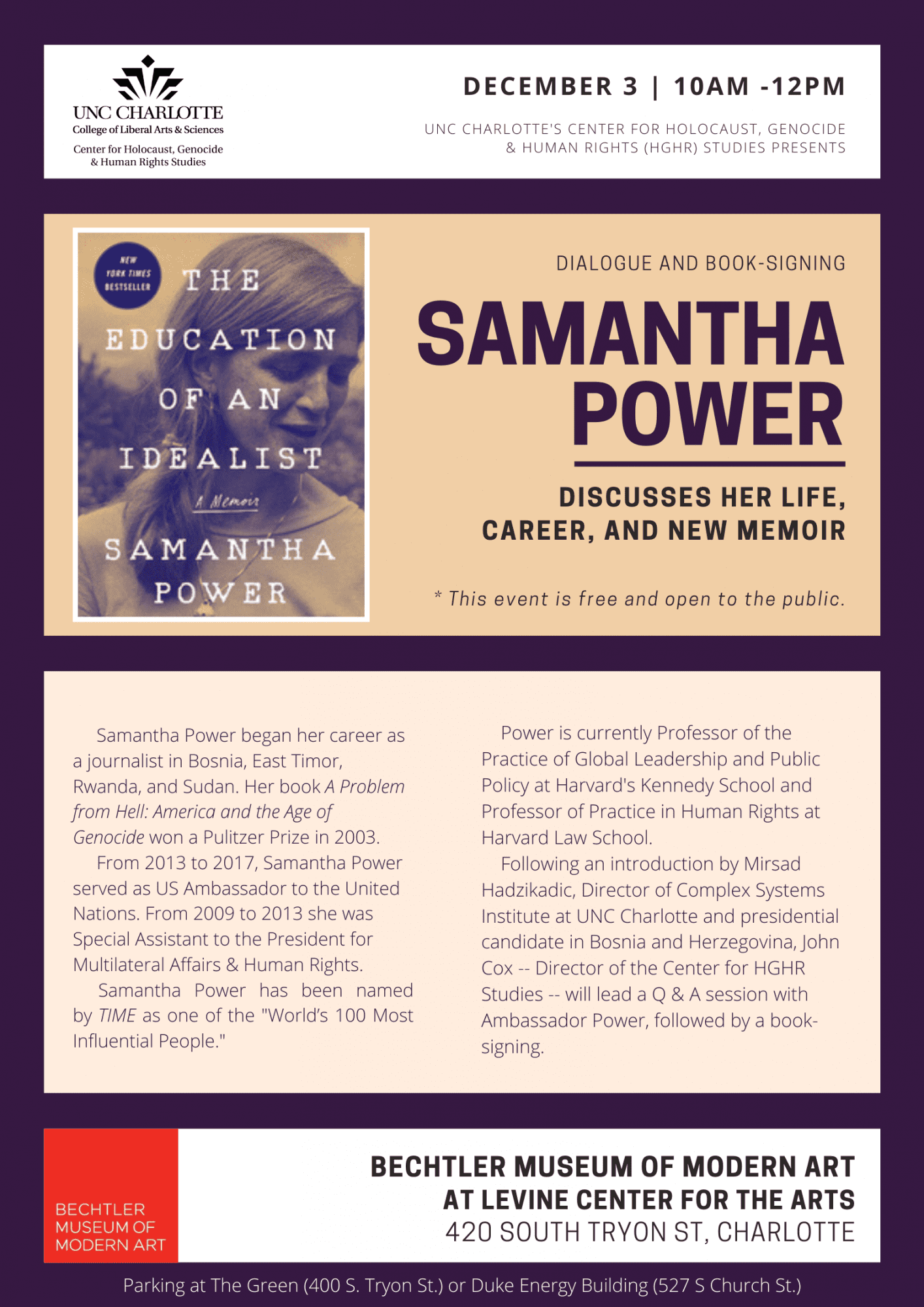
April 13-14: our first international conference, “Denial: The Final Stage of Genocide“
Scholars, activists, and artists from more than 15 countries participated. In 2020 a book based on the conference will be published by Routledge, along with a special issue of Genocide Studies and Prevention composed of additional papers from the conference.
Keynote speaker Lerna Ekmekçioğlu, hIstorian of the Modern Middle East at MIT and author of Recovering Armenia: The Limits of Belonging in Post-Genocide Turkey (Stanford University Press, 2016). Her keynote address was titled, “What Can Genocide and its Denial Do to Feminism? The Existential Paradoxes of Armenians in Post-Genocide Turkey.” Henry C. Theriault, Ph.D., President of the International Association of Genocide Scholars, delivered a closing keynote address, “Is Denial truly the final stage? Consolidation and the Metaphysical Dimensions of Denial.”
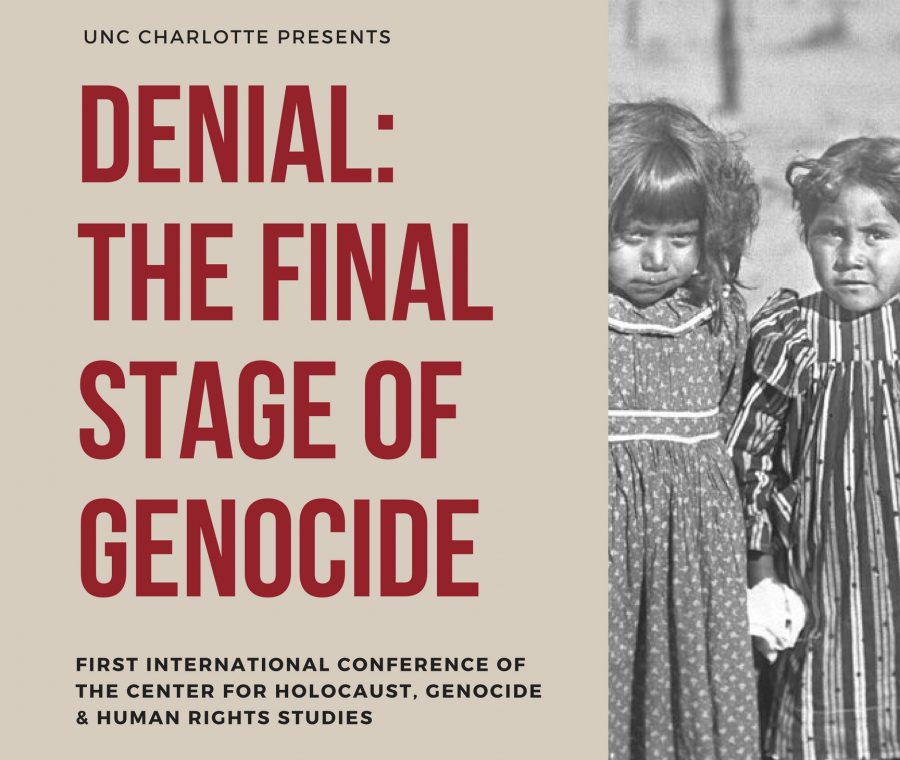
Photograph of two young Pima Indian school girls, ca.1900. Behind them a wire and wood post fence is visible. An example of forced assimilation and cultural genocide.
Thursday April 11 ¨ 2:30 – 3:45 ¨ Fretwell 121
The Forgotten Murders: Gendercide in the Twenty-First Century and the Destruction of the Transgender Body
Speakers: Haley Marie Brown, Stockton University; Nikolai Mather, UNC Charlotte
Haley Marie Brown is a transgender woman and a graduate student of Holocaust and Genocide Studies at Stockton University in New Jersey. Currently her research primarily examines the way gender-based violence against transgender women both fits within and challenges current approaches to the study of gender and genocide. Nikolai Mather (he/they) is a transmasculine student majoring in International Studies and Political Science at UNC Charlotte. His current projects include co-founding an undergraduate journal of Genocide and Human Rights Studies and researching the alt-right’s usage of racist memes.
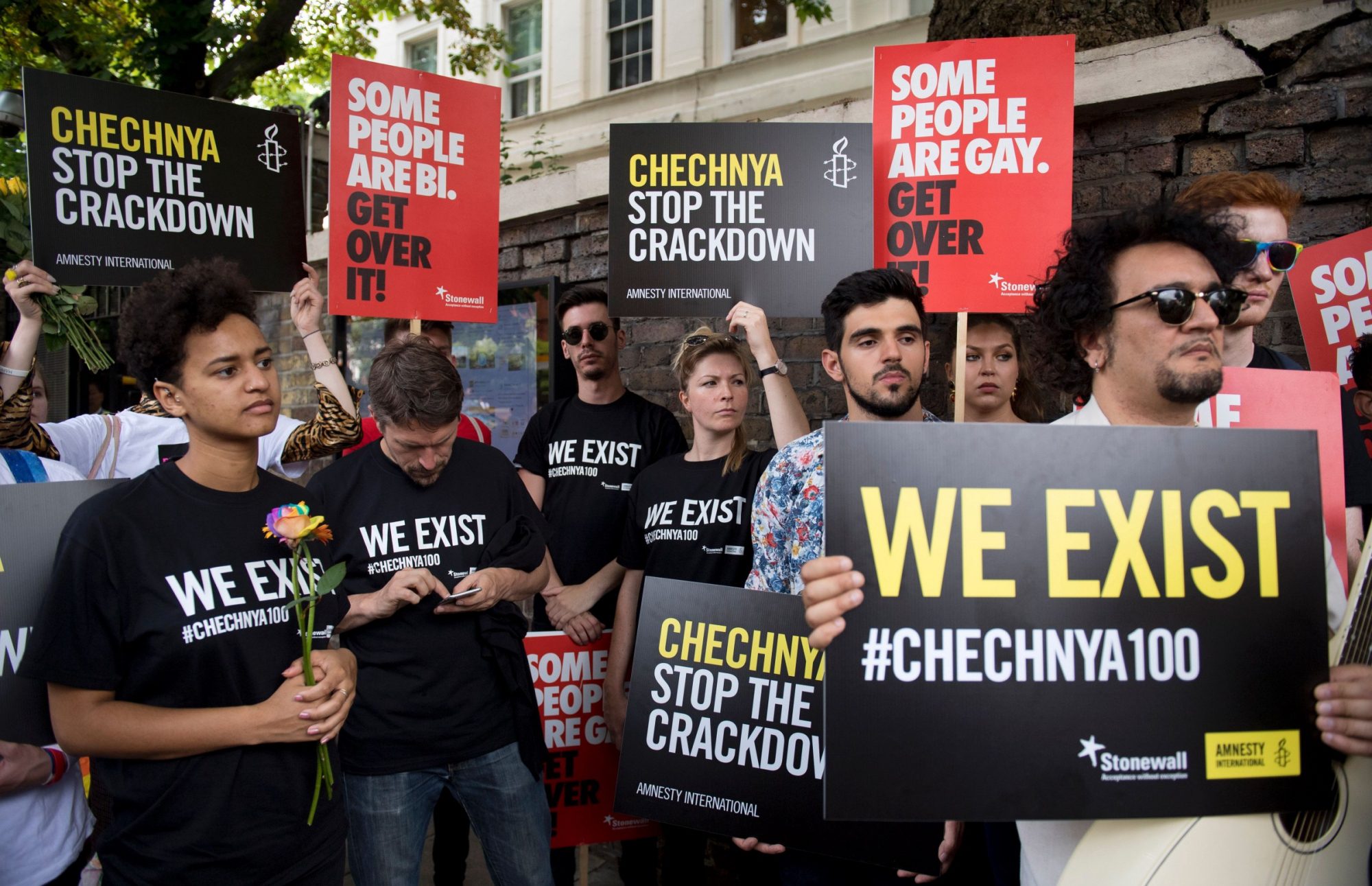
From Amnesty International article, “Trump Administration Silent as Chechnya and Azerbaijan Torture Gay Men.”
Co-sponsored by UNC Charlotte’s Women’s & Gender Studies program, Department of Philosophy, and LGBTQ+ Staff and Faculty Caucus.
This event made possible through a grant from the Women’s + Girls Research Alliance of UNC Charlotte.
“Racial & Gender Identities: Confusion and Anti-Blackness”
Monday April 15 2:30 – 3:45 Denny 200
Lecture and discussion with Zoé Samudzi
Rachel Dolezal was invited to speak for Black History Month last month at a college in Washington. Also recently, Philosophy professor Rebecca Tuvel argued in a widely discussed journal piece that if “we should accept transgender individuals’ decisions to change sexes, we should also accept transracial individuals’ decisions to change races” and thereby embrace “transracialism.”
“Race” is indeed a social construct, but: Are certain identities so easily mutable? Can Elizabeth Warren or Rachel Dolezal claim any heritage they desire? Such assertions employ ad hominem fallacies to re-assert hierarchies of knowledge, discourse, and personhoods.
Zoé Samudzi is a freelance writer whose work has appeared in The New Inquiry, ROAR Magazine, Verso, Broadly, and other spaces. She is a doctoral student in Medical Sociology at the University of California, San Francisco. Her research examines colonialism and technologies of race and gender, focusing particularly on the 1904-1908 German genocide of the Herero and Nama peoples in present-day Namibia.
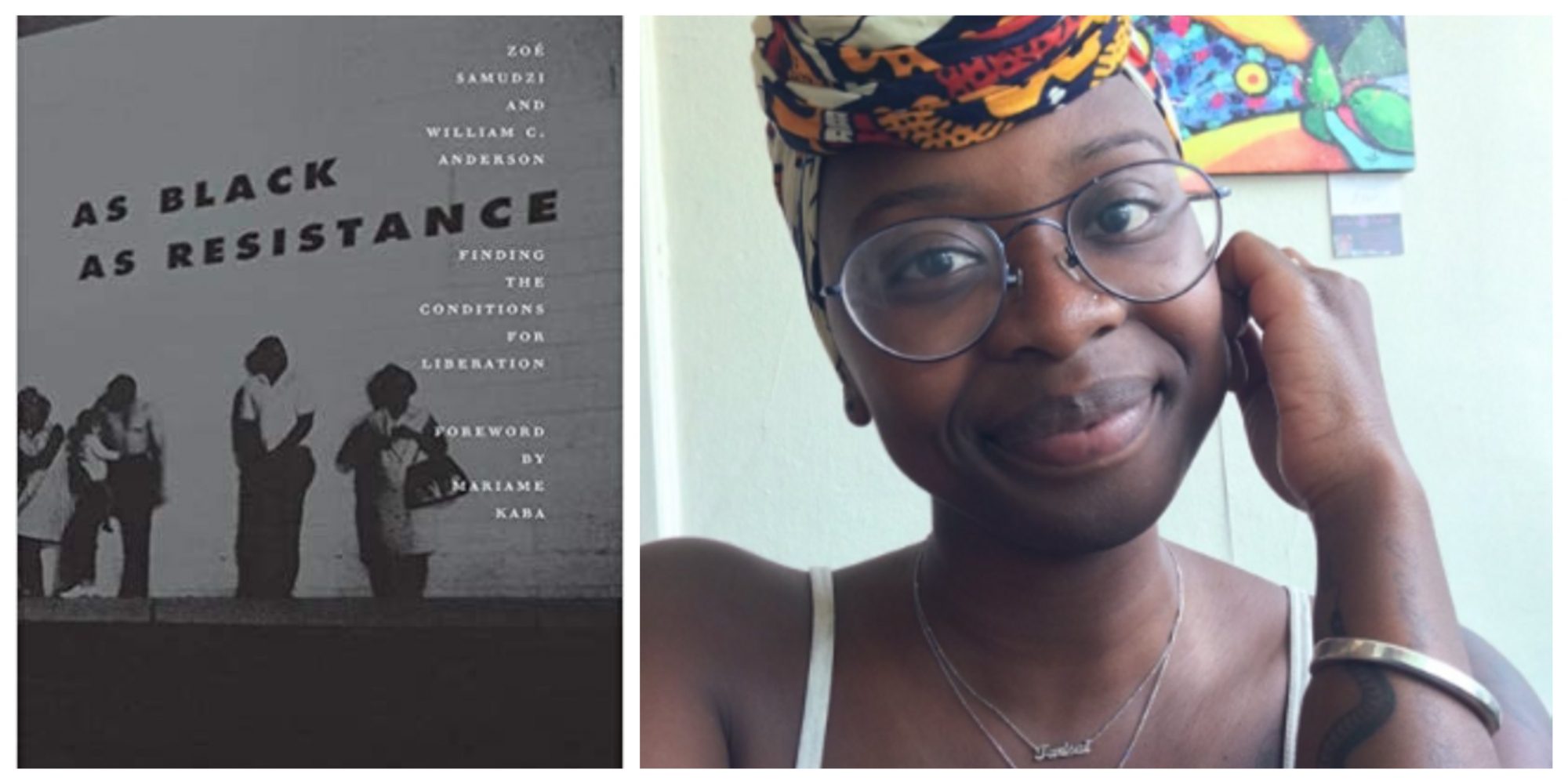
Samudzi’s article “Shifting Objectives: On Methodology and Identity Politics.”
Co-sponsored by UNC Charlotte’s Women’s & Gender Studies program, Department of Philosophy, Department of Africana Studies, and LGBTQ+ Staff and Faculty Caucus
We encourage everyone to support & attend these events:
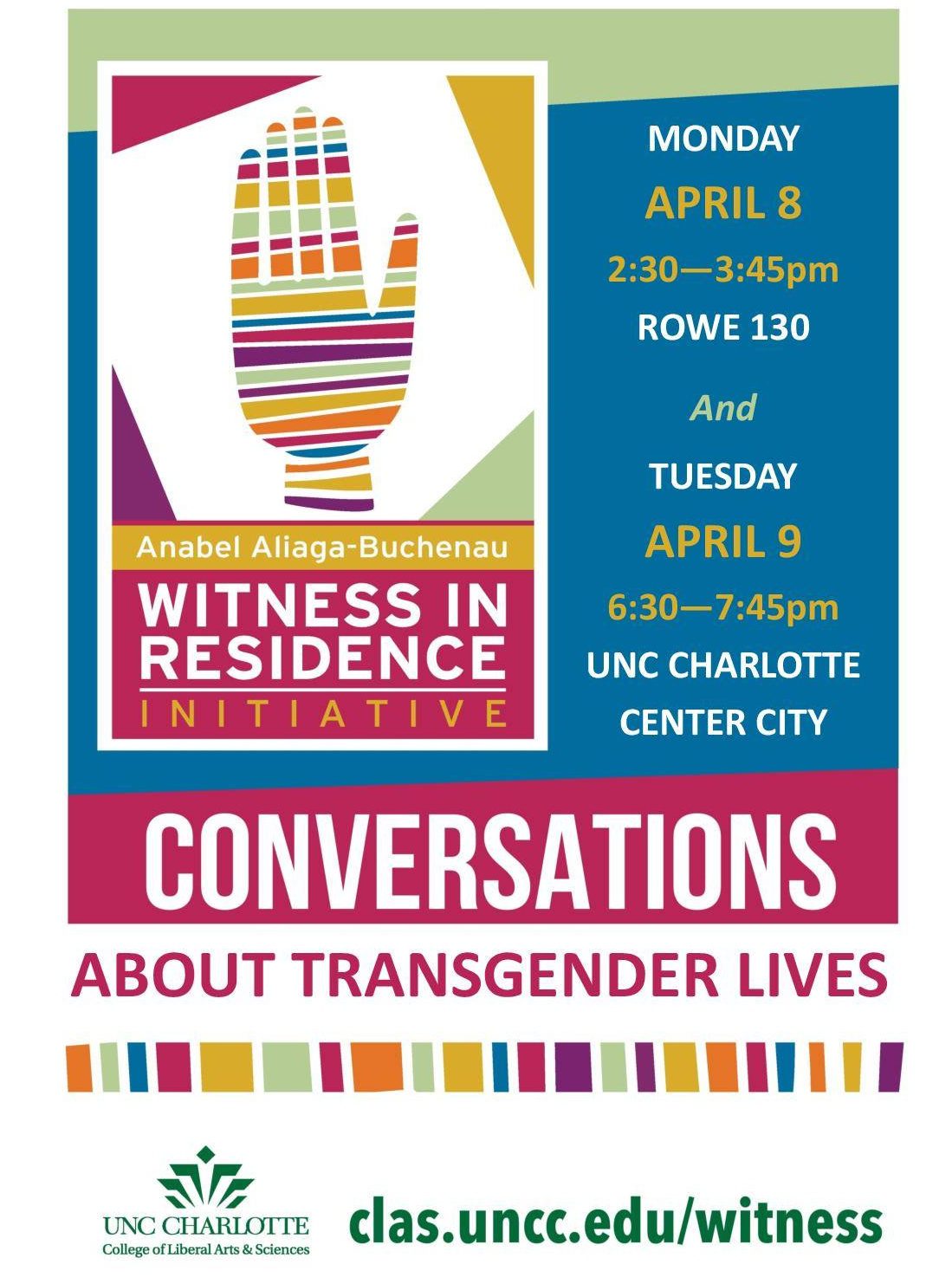
The witnesses in the conversation are:
- Matthew Rice, a transgender man living in Charlotte who has conducted research on HIV/AIDS in the transgender community in San Francisco and now teaches science in a local high school. He is a board member for Time Out Youth, a local organization that provides a safe space for all Lesbian, Gay, Bisexual, Transgender, Queer (LGBTQ) teens.
- Rev. Debra Hopkins, a transgender woman who is an ordained minister as well as a motivational speaker and teacher who addresses issues of gender equality. She is director of There’s Still Hope, a transitional home for the trans community established to help end homelessness in Charlotte. Ms. Hopkins has written a memoir, Not Until You Have Walked in My Shoes – My Story.
- Debra Bercuvitz, a lifelong lesbian who has been partnered with a transgender man for 27 years. She has published and spoken extensively about this experience to college and national audiences. Her relationship transition was documented as the cover story of The New York Times Magazine in October 2001. Debra holds a master’s degree in public health from UNC-Chapel Hill and lives in Massachusetts. She coordinates substance use interventions for the Department of Public Health’s maternal and child health bureau.
The Center also co-sponsors many events and symposia and we are proud to support this workshop, May 14 – 17, 2019.

We are also organizing a field trip (Fall 2019) to the amazing, overwhelmingly powerful new museum & memorial in Montgomery, AL, which opened last April
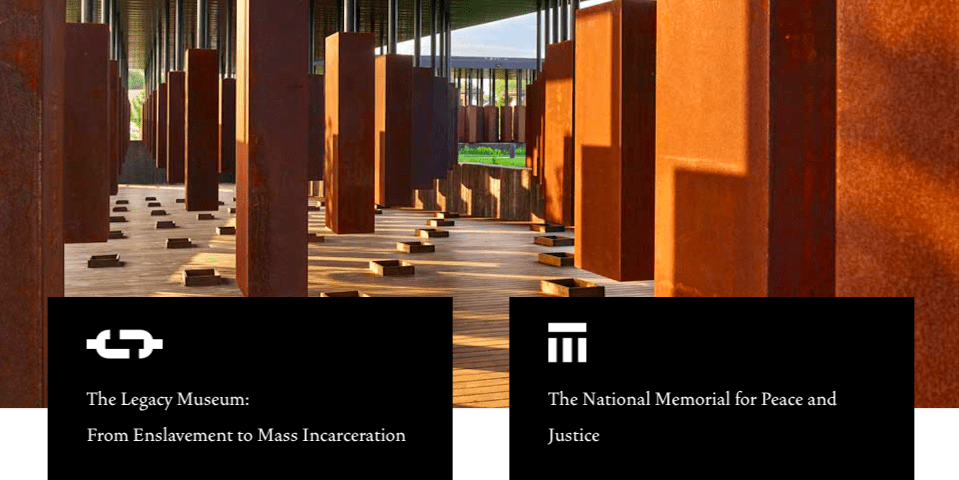
Events earlier in 2019
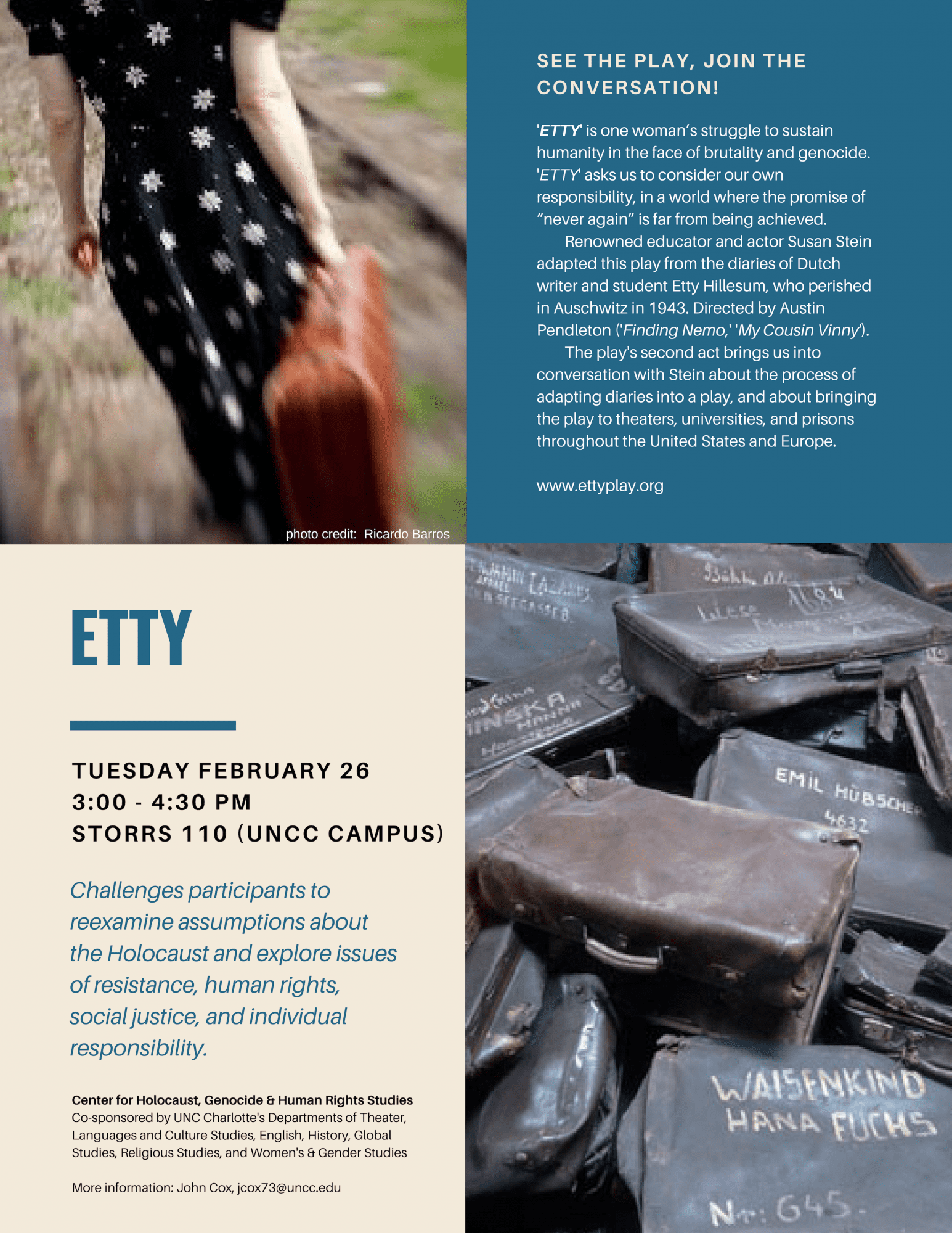
Lecture by Haitian-Québécois author Marie-Célie Agnant: “Writing from the Silence”
Thursday, January 10th, 2:30-3:45, CHHS 155
This presentation will include readings of extracts of some of the author´s prose and poetry, as well as the various legacies which intervene in her writing process. Among those: Silence. “It is out of that silence, from the silence and against that silence that I write, and from that place where silence becomes violence. By so doing I also try to question the ways of representation of the political, historical and literary discourse, as well as the boundaries dictated by fiction.”
Born in the Haitian capital city, Port-au-Prince, in 1953, Agnant worked as an interpreter and as a translator for many years. After moving to Quebec, Canada at the start of the 70’s she also worked as a French teacher before reentering the world as a storyteller. With many shorts, full blown novels, children’s books and poems under her belt, Agnant has truly transitioned into a storyteller of more than simple worth to the Haitian literary heritage.
Sponsored by:
The French Club at UNC Charlotte, Department of Languages and Culture Studies, Department of English
Center for Holocaust, Genocide & Human Rights Studies, Alliance Française of Charlotte
2018 Events
And Then They Came for Us
Incarceration of Japanese Americans during WWII
50-minute documentary followed by discussion
November 12 5:30 – 7:00 Fretwell 121
AND THEN THEY CAME FOR US is a cautionary and inspiring tale for all societies. It chronicles the moral and human damage done after President Roosevelt signed an Executive Order ordering the forced incarceration of 120,000 Japanese Americans. Thousands of American citizens lost their homes, their businesses, and their families due to war hysteria and racism.
Featuring Japanese Americans who were incarcerated, rediscovered photos by Dorothea Lange, and the story of Fred Korematsu’s long journey to justice, the film brings history into the present, as it follows Japanese Americans speaking out against the current Muslim travel ban and other regressive immigration policies.
Part of International Education Week, organized by UNC Charlotte’s Office of International Programs
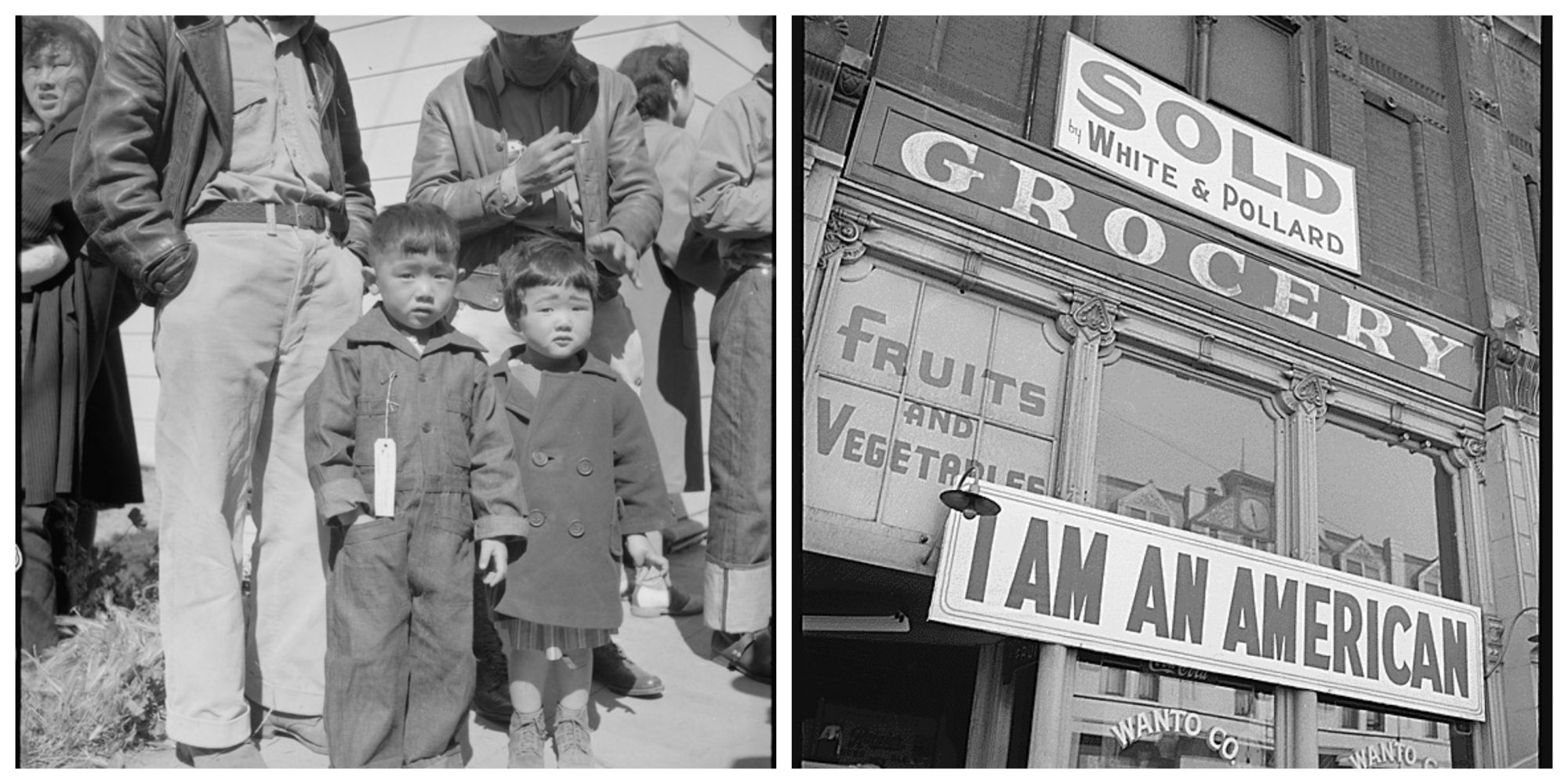
The 1994 Rwandan Genocide: The Voice and Struggles of a Child Survivor
Monday November 5, 2:30 – 3:45 pm, Fretwell 100
After the Holocaust, survivors and representatives of the international community solemnly intoned a “never again.” Yet, genocides became a recurring reality in the Cold War and post-Cold War worlds. The 1994 genocide in the East African country of Rwanda is but one of too many examples. In roughly three months, the Hutu Power perpetrators slaughtered some 800,000 Tutsis and Hutu opponents.
Mugabo Yves will speak about these mass murders in Rwanda from the perspective of a child survivor. In April 1994, he was seven years old. His Tutsi family lived in the capital, Kigali, which became one of the key sites of the killings. His mother and many close relatives perished.
Yves survived with the help of Hutu civilians. He fled to a refugee camp in neighboring Uganda, where he stayed for eight years before he managed to immigrate to the United States along with his surviving sisters. He now resides in Charlotte.
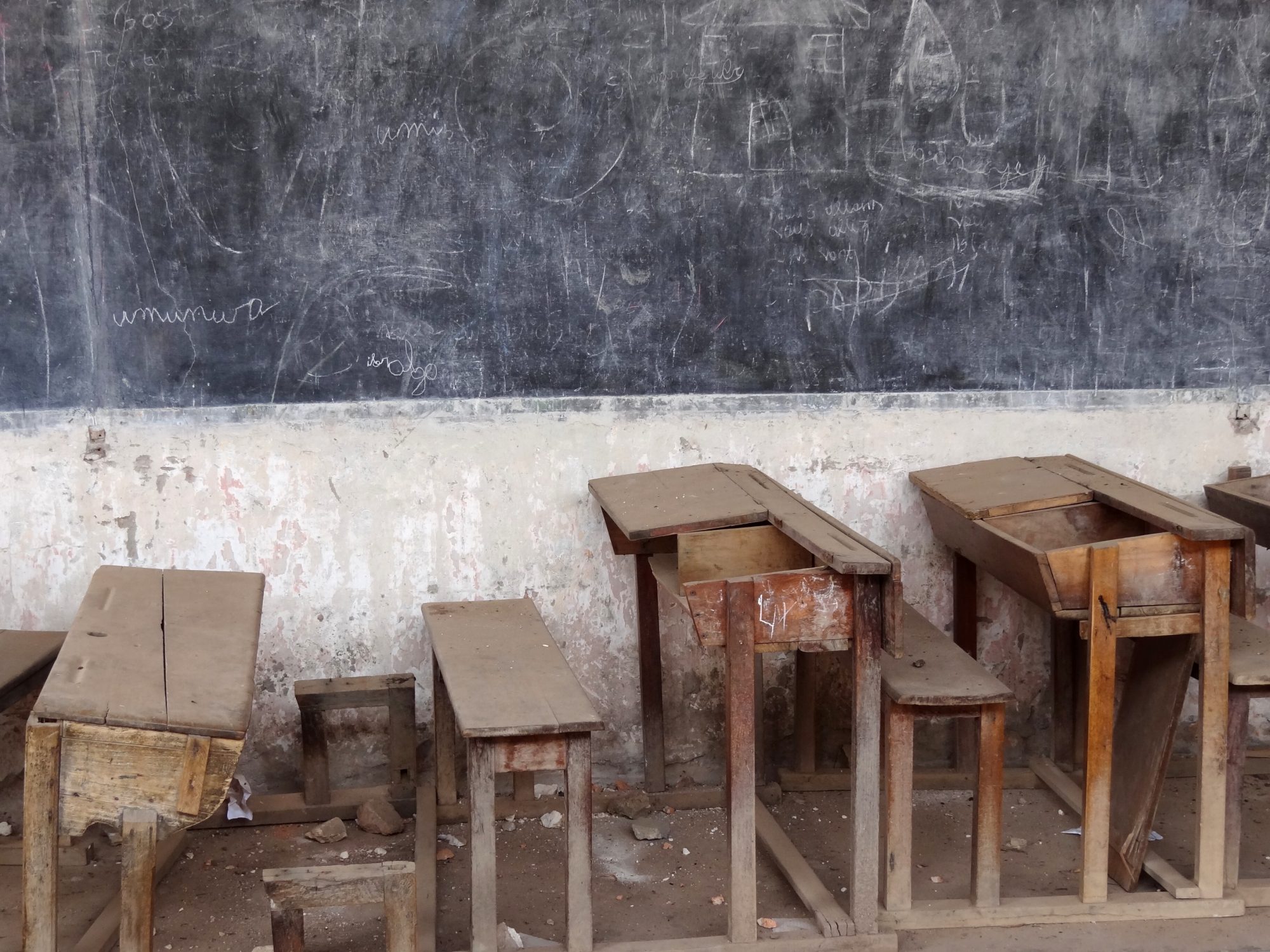
Children’s Desks and Blackboard at Kabgayi Hospital – Genocide Site – Outside Muhanga (Gitarama) – Rwanda. Photograph courtesy of Adam Jones
Anti-Semitic Terrorist Attack in Pittsburgh:
Open Mic and Panel Discussion on Antisemitism and the Recent Upsurge in Hate Crimes and Violence / Wednesday October 31, 4:00 – 5:15, Fretwell 100 (UNC Charlotte) / Center for Holocaust, Genocide & Human Rights (HGHR) Studies and the Departments of Global Studies, History, Languages and Culture Studies, and Religious Studies; More information: John Cox, jcox73@uncc.edu
Main Sanctuary Stained Glass Windows, Tree of Life / L’Simcha Synagogue, Pittsburgh
Events earlier in 2018
| |
|
|

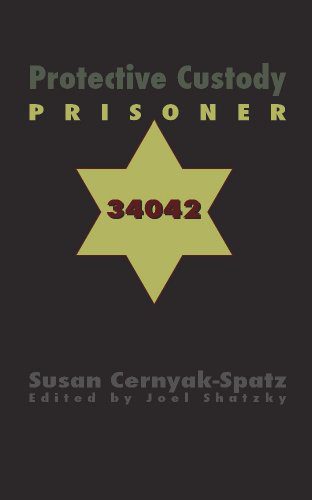 A warning from history and a story of survival
A warning from history and a story of survival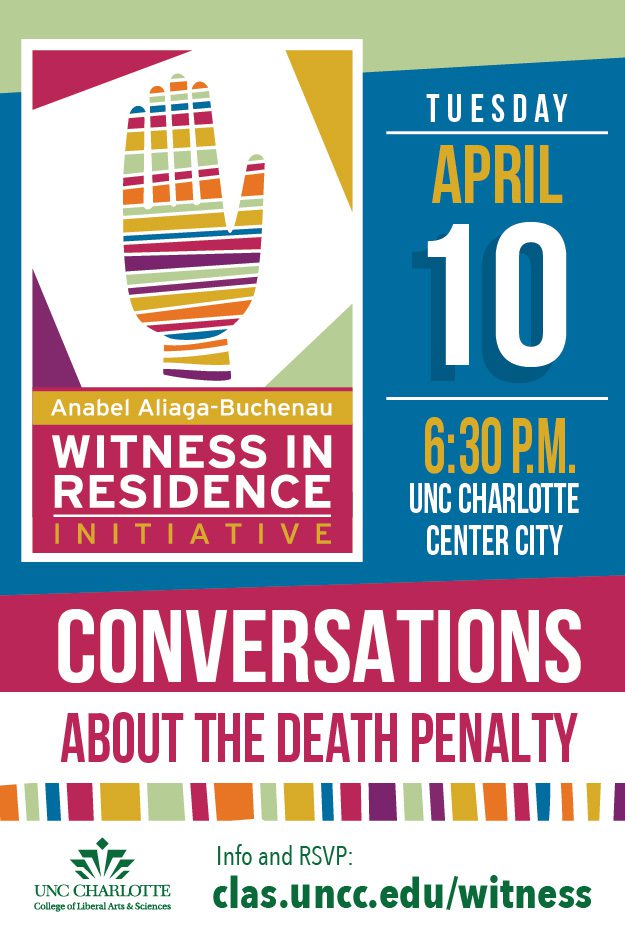
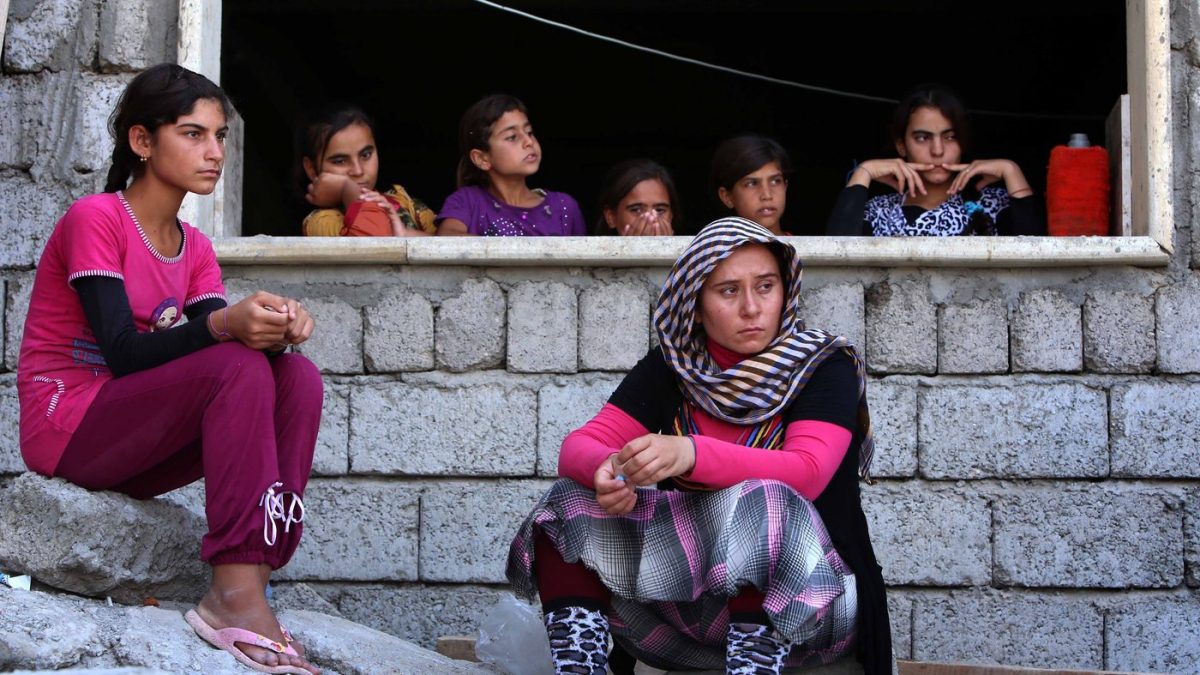 Panel discussion with representatives of
Panel discussion with representatives of